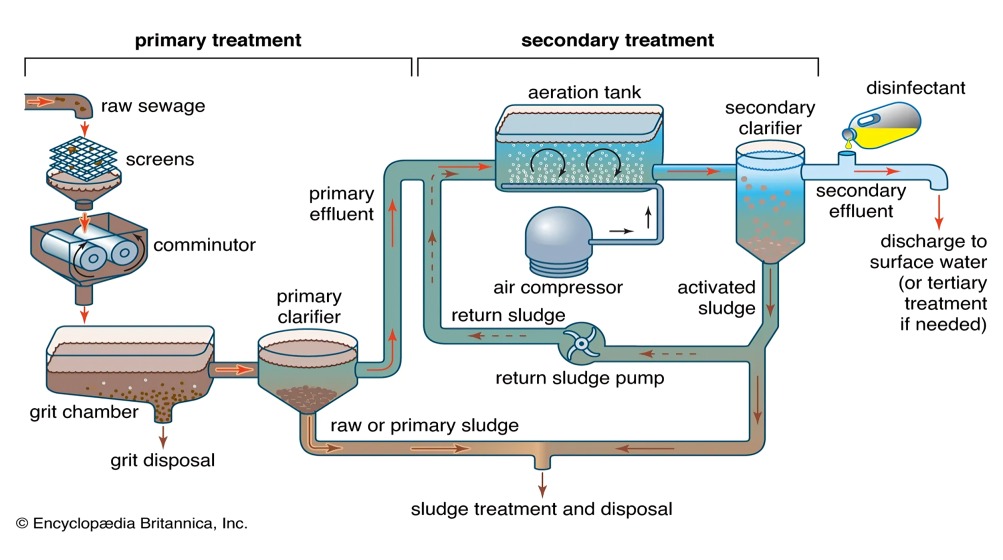SCADA For Water Treatment Plants

SCADA stands for Supervisory Control and Data Acquisition. Before these systems were created and introduced in manufacturing, industrial, and utility operations, workers would be required to manually operate and monitor this equipment. With the development of programmable logic controllers and microprocessors, these systems could be automated, which meant that manually operating the system was no longer necessary. We made SCADA System for Sewage Treatment Plant in Canada
Automated monitoring became considerably more advanced and effective throughout the latter years of the 20th century. By the early 2000s, open-source SCADA System for Sewage Treatment Plant were widely adopted. These systems are now able to be connected to tablets and mobile devices in completely remote locations for easy access and control. When property implemented, these systems are comprised of hardware and software components. Industrial facilities that use these systems can:
- Gather and monitor real-time data
- Control various industrial processes locally or remotely
- Record different events via a log file
- Interact with additional devices throughout the facility, which include valves, sensors, motors, pumps, and HMI software
While SCADA System for Sewage Treatment Plant have been used in many different industrial facilities, they are exceedingly popular in water treatment plants because of the various types of data that can be gathered and analyzed. Once a SCADA system is properly installed, plant operators are able to gain instant access to the information they need to make critical decisions. Because the systems throughout the water treatment plant are monitored through digital means, the data is considerably more precise and up-to-date.
As mentioned, water treatment plants can use this information to identify such problems as chemical imbalances, leaks, and overflows. The flow meters that are installed throughout the facility will send data to terminal units, after which the data is transmitted to plant operators. By gaining quick access to this information, it’s possible for plant operators to correct the issues early on, which should reduce system downtime.
Benefits of SCADA Systems in Water & Wastewater Treatment Plants
Once a water or wastewater treatment plant is outfitted with a SCADA system, the facility will benefit from:
Real-time data analysis and security
Automation with SCADA
Reducing water costs for consumers
While the main benefit of these systems is that they allow for real-time data analysis, integrating this system into your facility will also give you the opportunity to automate more industrial processes while also reducing the water costs that are passed on to consumers. These systems are highly beneficial in water treatment plants because of the need for data to correct issues and identify problems before they turn into expensive repairs.
Real-time Data Analysis & Security
Modern SCADA systems are based on a combination of software and hardware, which work together to provide plant operators with real-time data analysis as well as extensive security. As touched upon previously, the flow meters that are installed in your water treatment plant will collect and send data through the SCADA system in real-time, giving you the ability to perform instantaneous data analysis.
Security
As for security, infrastructure for water utilities can be vulnerable, which is why increasing security for this infrastructure is highly recommended. SCADA allows you to connect camera systems throughout the facility. These cameras can be accessed remotely and should give you confidence that these areas are fully secure. By supervising certain areas with a connected camera system, repairs can be made more efficiently when a problem occurs.
Automation with SCADA
Many modern SCADA systems provide users with extensive automation features, which allows plant operators to avoid completing some of the more basic and repetitive tasks that must be performed at a water treatment plant. Even though experienced plant operators are necessary for any water treatment plant, SCADA can be used to identify some of the smaller inconsistencies and issues that might be missed by plant operators. Keep in mind that automated systems are more energy efficient than manual systems. If you have an automated SCADA system installed in your facility, it should be easier to avoid overflows and similar problems that typically result in violations of EPA regulations. An automated SCADA system will tell you when repairs are needed.
SCADA systems can be used for many distinct applications in water and wastewater treatment plants, the primary of which include:
- Filtration plants
- Pumping stations
- Distribution networks
- Plant security
- Data maintenance
Article
